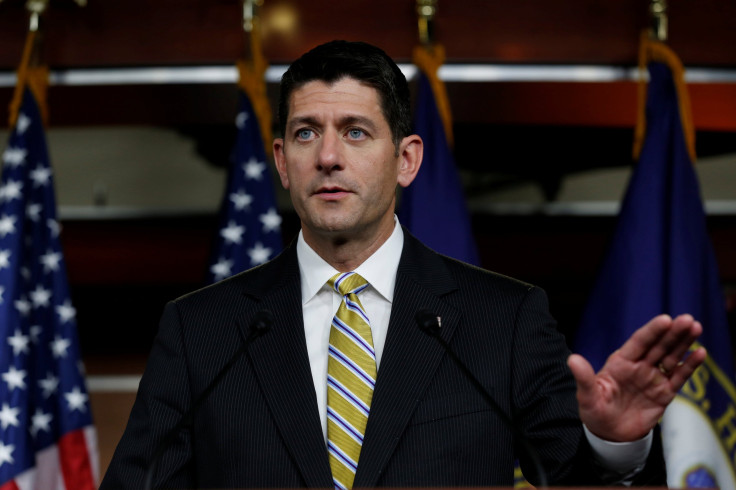Tax Bill: California And Illinois Republicans Could Face Intense Pressure

House Speaker Paul Ryan is reportedly planning to name lawmakers for the committee that will shape the final tax bill, and his expected picks include top Republicans from some states that could be hit particularly hard by the bill. If they end up on the panel, they could face pressure from constituents to change the legislation.
The Hill reported Monday afternoon that Ryan is expected to pick GOP Reps. Kevin Brady (TX), Devin Nunes (CA), Peter Roskam (IL), Diane Black (TN), Kristi Noem (SD), Rob Bishop (UT), Don Young (AK), Greg Walden (OR) and John Shimkus (IL). Last month, all of them voted for the House version of the tax bill — but the legislation now moves to a conference committee that will be under intense scrutiny.
Three of the nine — Nunes, Roskam and Shimkus — come from California and Illinois, which are among the states that could see the biggest share of their populations face a tax increase. That’s because their tax systems rely on income taxes, which could lose their federal tax deductibility under the congressional bill.
Illinois' income tax rate recently moved up to 16th in the nation. California has the highest personal income tax rates in the country, and taxpayers there filed $40 billion worth of federal deductions, according to the Sacramento Bee.
In addition, California could get hit hard by changes to the mortgage interest deduction: Capital and Main reports that the House-passed version of the bill creates a $500,000 cap on the amount of mortgage interest that can be deducted — a “revision would disproportionately hit residents of states with high real estate values, like California, where finding a home under $500,000 in most urban markets is very difficult.”
A Center on Budget and Policy Priorities analysis released before the Senate vote found that 17 percent of Illinois residents and 23 percent of California residents could see their taxes increase under the Republican tax plan, depending on how the final bill is reconciled.
Pressure on the California Republicans could be the most intense: The Los Angeles Times notes that California GOP House members represent some of the key districts Democrats are targeting in the 2018 election. The newspaper noted that in Nunes' district, 30 percent of all tax filers utilized existing deductions for state and local taxes.
© Copyright IBTimes 2025. All rights reserved.






















